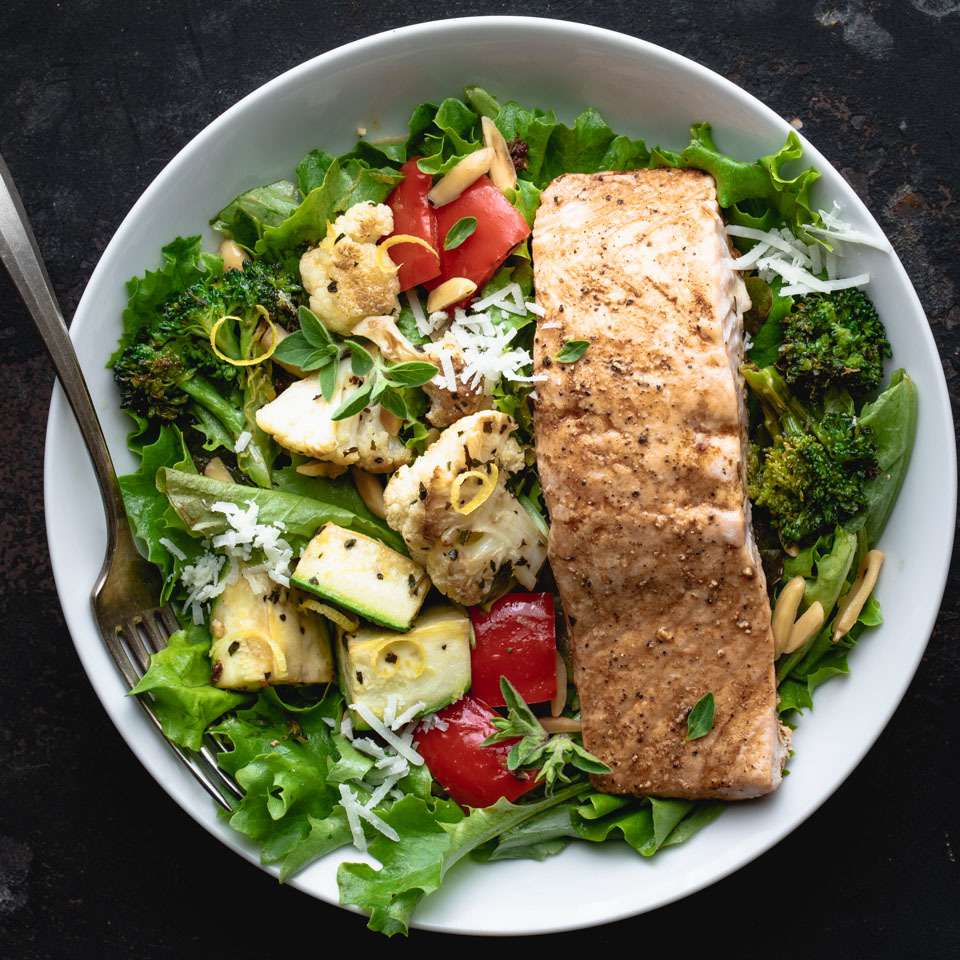How to Prepare a Gut-Healthy Supper and Why It’s Vital for Your Health and Well-Being
With good reason, gut health has emerged as one of the most talked-about aspects of diet and health. The significance of gut health is constantly emphasized by experts, but why is it so important? In this article, we’ll take a closer look at why gut microbiota health is essential, how it relates to overall health, how nutrition plays a key role in maintaining gut health, and how to create mouthwatering dinners that both your gut and your family will love.
What Makes Gut Health So Vital?
More and more data is being gathered by researchers to demonstrate that gut health affects much more than just digestive health, which is crucial. When it comes to gut health, researchers are particularly interested in the gut microbiome, which is a collection of more than a trillion bacteria that primarily reside in the large intestine. The majority of the tiny organisms that comprise the gut microbiome are bacteria, but certain kinds of viruses and yeast also reside there.
Numerous bodily systems are impacted by the health and balance of the gut microbiota. Here are a few key examples:
Function of the Gastrointestinal System
The gut microbiota is crucial to preserving regularity and a healthy digestive system. The biome plays a vital role in metabolism by producing specific amino acids, vitamins, and minerals, including the crucial calcium. It also helps remove toxins and undesirable substances from food via the digestive system.
Mental Well-Being
These days, the gut-brain axis is nearly as buzzworthy as the gut microbiota itself, having surprised the world of researchers and medical experts alike. Nerve cells lining our intestines communicate directly with the brain and other parts of the central nervous system. The gut-brain axis is a bidirectional communication system that significantly impacts our emotions and thoughts. Research has shown a connection between gut health and mental health conditions, including anxiety and depression, as well as overall cognitive performance and stress management skills.
Immune System Function
Supporting a robust immune system is one of the gut microbiota’s most important roles. By maintaining an ideal balance of beneficial to harmful microorganisms, a balanced gut microbiota supports strong immunity, reducing the likelihood that harmful microorganisms will take hold and cause illness. Additionally, the gut microbiota regulates a variety of immune cell types throughout the body.
Chronic Illness
The expression of many chronic illnesses is closely linked to the gut microbiota, according to an intriguing study. Rheumatoid arthritis, type 1 and type 2 diabetes, inflammatory bowel disease, irritable bowel syndrome, liver disease, kidney disease, and heart disease are just a few of the conditions associated with gut health.
How to Prepare Meals That Promote Digestive Health
Food choices matter, but if you’re a foodie, you’ll be pleased to hear that eating is the simplest and most efficient approach to improving your gut microbiota. To maintain intestinal balance, here are some of the best food categories to prioritize and others to restrict.
Fiber and Prebiotic Foods
Fiber generally supports regularity, proper digestion, and overall gut health. However, prebiotics, a specific type of fiber, are especially beneficial because they serve as food for good bacteria. Oats, onions, carrots, garlic, broccoli, berries, apples, flaxseed, mushrooms, leafy greens, whole grains, tomatoes, legumes, and honey are all excellent choices.
Probiotics
Probiotics are beneficial bacteria that increase the number of healthy microorganisms in your gut microbiota. Yogurt, kimchi, kefir, miso, tempeh (fermented tofu), kombucha, buttermilk, sauerkraut, and several kinds of pickles are delicious fermented foods that help improve gut health.
Anti-inflammatory Foods
Reducing inflammation is essential for gut health. Foods that cause inflammation can aggravate the microbiota and affect its ability to function. Conversely, diets that reduce inflammation are often rich in vitamins, minerals, plant compounds, and/or omega-3 fatty acids. Nuts, seeds, beans, olives, dark green vegetables, berries, apples, tea, pomegranates, herbs, spices, hemp hearts, avocados, salmon, anchovies, and sardines are among the top sources.
Keep in Mind:
Avoid:
- Alcohol
- Added sugars
- Processed foods
- Processed meats and red meats
- Fried foods
- Artificial sweeteners
Avoiding generally inflammatory chemicals can have a significant impact on gut health, as inflammation can disrupt your gut microbiota.
Recipes for Gut-Healthy Dinners
These five meal ideas are great for incorporating gut-healthy ingredients, helping you create delicious meals that promote gut health. Once you understand how to prepare gut-healthy meals and what works best for your family, feel free to modify these meal plans to suit your needs.
Kimchi Fried Rice
You may not want to go back to your old fried rice recipe—or order the usual takeout—after adding chopped kimchi, a flavorful Korean fermented cabbage. The tang of probiotic-rich kimchi elevates every savory bite of rice. Add garlic, onion, and scallions, which are incredible sources of prebiotics to help your gut flora thrive. Opt for brown rice for additional fiber and add cooked egg, shrimp, chicken, edamame, tofu, or your favorite protein for a heartier meal.
Fish Tacos with Greek Yogurt Crema and Avocado Salsa
Elevate Taco Tuesday by introducing gut-boosting ingredients. Fish tacos are always a crowd-pleaser, and any fish will do here. Salmon (rich in omega-3s), shrimp, tilapia, cod, swordfish, tuna, and even frozen fish sticks will work. Use plain Greek yogurt instead of sour cream to add probiotics. Top with a fresh salsa made with tomato, avocado, garlic, and onion to cover all your prebiotic and anti-inflammatory bases.
Miso-Marinated Salmon with Veggies
Miso provides probiotics and an umami punch, while the omega-3-rich salmon is anti-inflammatory. Pair with quinoa, roasted veggies, and plant compounds to create a well-rounded, gut-healthy meal.

